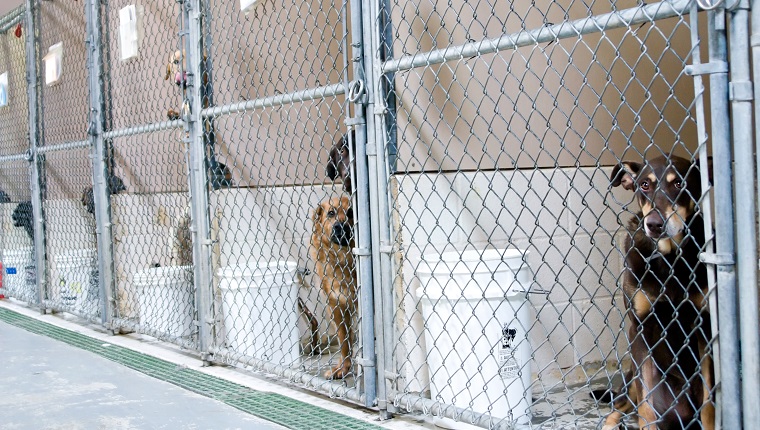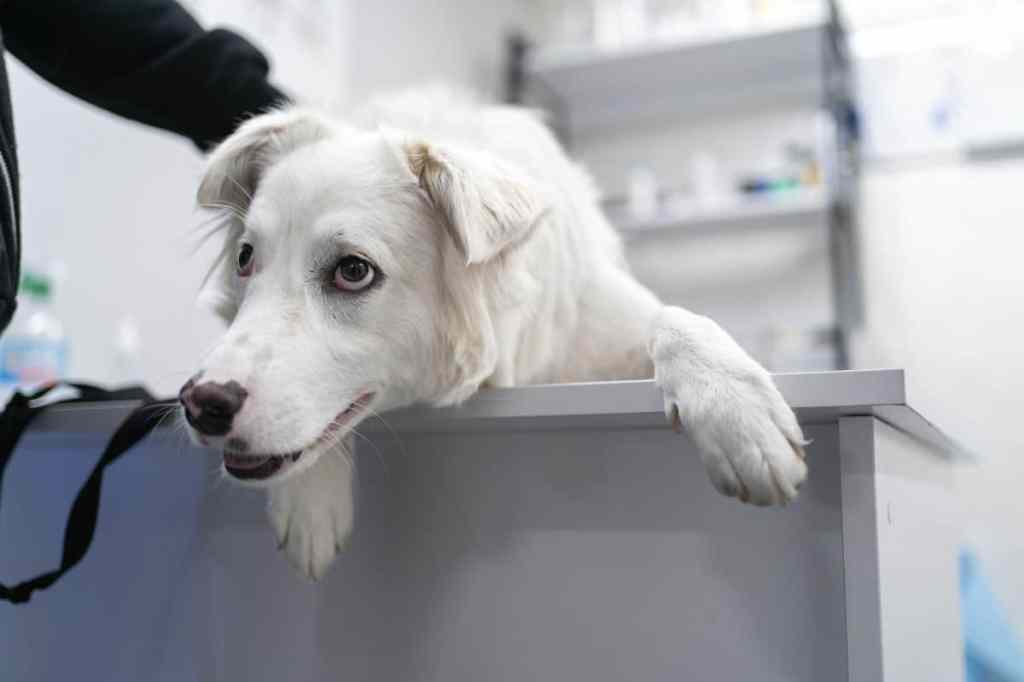Bordetella in dogs is a bacterium (full name: Bordetella bronchiseptica) that often causes respiratory disease. It’s one of the most common causes of the disease known colloquially as “kennel cough.”
If you see signs of an infection in your dog, it’s important get to your veterinarian for a proper diagnosis and appropriate course of treatment. Thankfully, most dogs go on to fully recover from illnesses caused by this bacterium.
Here’s what you should know about the symptoms, causes, and treatments for bordetella infections in dogs.
Symptoms Of Bordetella In Dogs
Symptoms of bordetella infections in dogs primarily manifest as a persistent cough.
Dog parents often say that the sound of the cough can resemble the noise a honking goose makes. Vets sometimes call this “reverse sneezing.”
Some other symptoms of bordetella infections in dogs include:
- Eye discharge
- Less of an appetite
- A consistently runny nose
- Fever
Causes Of Bordetella In Dogs

The main way dogs catch bordetella is by inhaling bacterial particles. When these particles make their way to the respiratory tract, the dog can experience an inflamed windpipe or voice box.
Certain situations can increase the chances of a dog catching diseases caused by the bacterium. These include the following:
- Staying in a poorly ventilated living space (such as certain kennels)
- Colder temperatures
- Exposure to dust or smoke
- Stress (often brought on by travel issues)
Treatments For Bordetella In Dogs
The good news is that many cases of bordetella infections will go away on their own without any additional treatment. But if you do bring your dog to a veterinarian, they might prescribe antibiotics to help speed up recovery.
As ever, always follow the full dosage of any medicine prescribed by your vet.
Vaccines are also available to prevent infections. Your vet can administer vaccines against these diseases either by an injection or via nose drops. But always ask your vet about any potential side effects or complications before vaccinating your dog.








